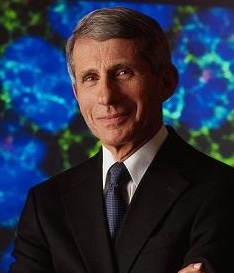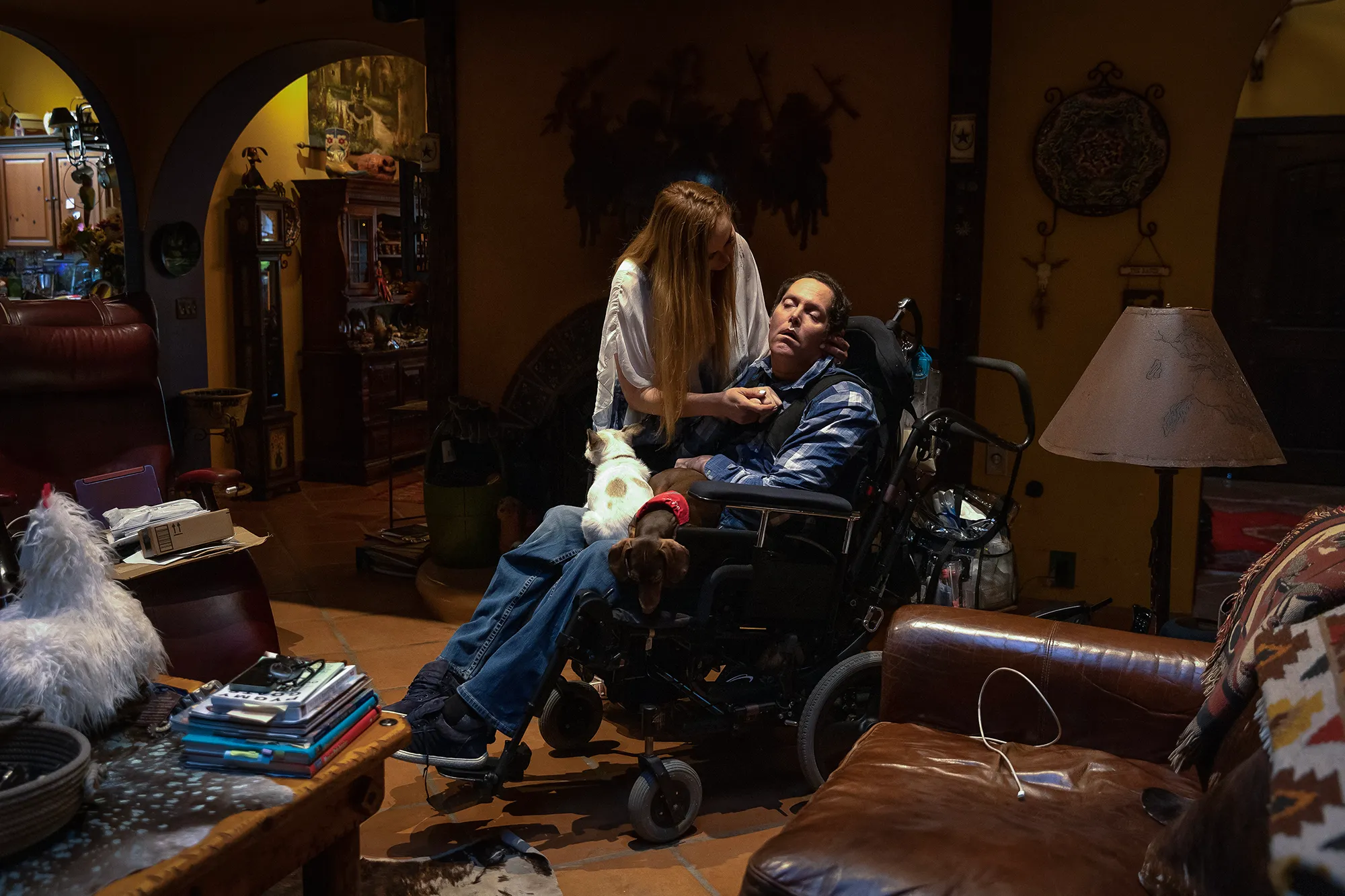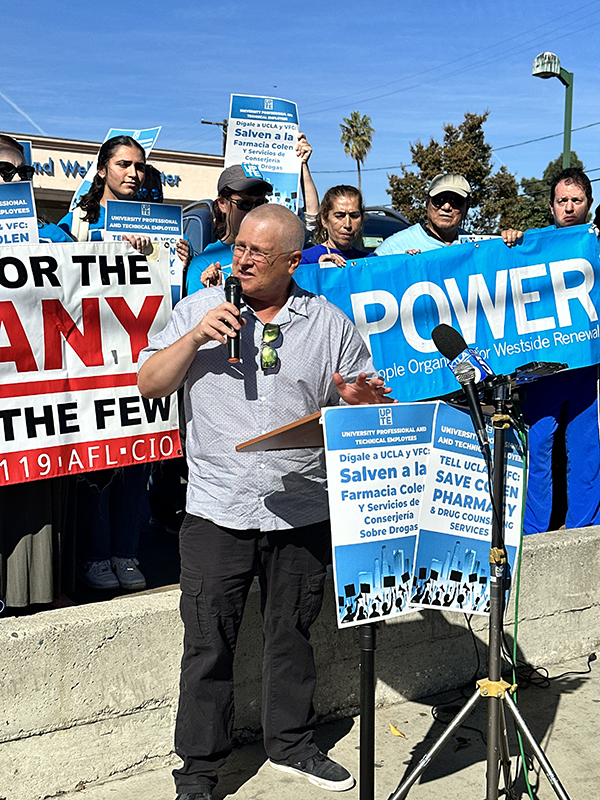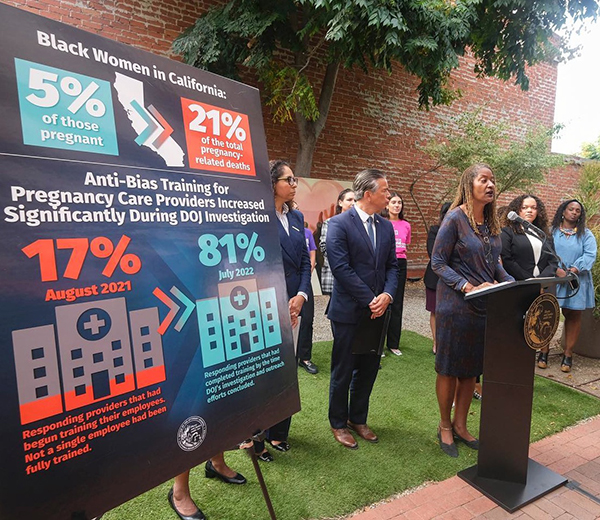By Darlene Donloe
Contributing Writer
Dr. Anthony Fauci doesn’t believe the pandemic is over, and added, “we shouldn’t be surprised” if another COVID variant emerges this winter.
Fauci made those statements Oct. 4, during a webinar for the press hosted by the USC Center for Health Journalism and led by Washington Post national health reporter Dan Diamond.
For four decades and through seven administrations, Fauci has been the leading scientific voice in the U.S. when it comes to public health challenges.
As director of the National Institutes of Health’s National Institute of Allergy and Infectious Diseases, he navigated the HIV/AIDS epidemic during the 1980s, and the COVID-19 pandemic starting in 2020, drawing criticism and controversy along the way.
Throughout his career at the National Institutes of Health, he has overseen an extensive portfolio of research to prevent, diagnose and treat established infectious diseases such as respiratory infections, diarrheal diseases, tuberculosis and malaria as well as emerging diseases such as Ebola and Zika.
Today, the 81-year-old chief White House medical adviser, who quickly became a household name, is now playing a vital role in the government’s response to Monkeypox.
During the webinar, Fauci, who has been both vilified and praised by the press, politicians, medical professionals and even the public, spoke candidly about COVID, how America should respond to emerging infectious diseases moving forward, whether he thought the pandemic was close to running its course, as well as his thoughts on President Joe Biden’s assertion last month that “the pandemic is over.”
Diamond asked Fauci, “Given the exhortation, the encouragement to go get the booster, how does that statement, the pandemic is over, help the federal government convince Americans who might be on the fence, to take precautions?
“It’s obvious that that could be problematic because people would interpret it as it’s completely over and we’re done for good, which is not the case,” Fauci said. “No doubt about that. I think it would be a bit cavalier to all of a sudden say we’re completely through with it. I believe what the president was referring to was that the stage that I mentioned a moment ago where you had 900,000 cases, and 3,000-4,000 deaths are now behind us. He did also say in the statement, ‘However, we still have challenges ahead and we’ve got to make sure we meet those challenges.’”
Fauci doesn’t believe the end of COVID is imminent because of the possibility of more variants.
“We still have a problem with COVID,” he said. “I don’t think we can say the end, being no more COVID, is in sight. We’ve had multiple waves, we’ve had valleys and peaks in the evolution of the outbreak as new variants came along.
“If you look at where we are now, with the number of cases, hospitalizations and deaths compared to several months ago, we’re not at that point now. We’re at much, much lower. It’s still at a level, that I’ve been very public about saying, I’m not comfortable with.”
Fauci, who recently announced he would retire in December, said while deaths have decreased and the U.S. is “going in the right direction,” things could change quickly.
“We are entering into the winter months where no matter what the respiratory disease is, there is always a risk of an uptick,” he said.
Fauci is being cautious, he said, because there is still a dominant variant and several sub-variants “creeping up.”
“So while we can feel good that we’re going in the right direction, we can’t let our guard down,” he said. “We now have available an updated vaccine that is specifically geared to the predominate circulating variant. We are encouraging people to get that updated vaccine.”
Asked by Diamond if there was anything he wished he would have done differently throughout the pandemic given the risk of information becoming what he called, “gobbled” by social media, the nation’s top infectious disease specialist said, “yes.”
“I mean, my goodness, no one’s perfect,” Fauci said. “Certainly I am not. When I go back in the early months, I probably should have tried to be much, much more careful in getting the message to repeat — the uncertainty of what we’re going through.”
During the pandemic, Fauci had to make a number of decisions, some of which he said were right and others that weren’t.
“It’s complicated,” he said. “When you’re talking about getting it right, it has to be put in the context where something week-to-week and month-to-month evolves. Is that a strike out or does it count as a whole new ball game? We should anticipate that we will get another variant. I hope we don’t get that but we shouldn’t be surprised if we do.”
To this day COVID’s origin has remained a mystery. Whether it was a mistake or man-made in a lab has not been verified. Fauci was asked why he misjudged the interest in the “lab leak” theory.
“I don’t think I misjudged the interest,” Fauci said. “There is always the concern, and I have kept a completely open mind, about the possibility that there may have been a lab leak, but one thing you can not walk away from is that lab leak is a theory with no evidence whatsoever.”
Fauci said early on when there was suspicion about it, he was part of the group that called together a bunch of experienced evolutionary virologists to seriously look at the theory.
“They published their conclusion that it is most likely a natural occurrence,” he said. “There is evidence that there is a natural occurrence and zero evidence that it’s a lab leak.”
Fauci concluded the webinar by addressing how the U.S. could and should focus on health equity and vulnerable populations in its future responses to mass public health emergencies like COVID.
“It is a big problem with the health inequities and the disparities that comes out every time there’s a health process,” Fauci said. “That requires a decades-long commitment in neutralizing those health disparities, which are a result of social determinants of health that is, I believe, deeply rooted in the original sin of racism.
“We gotta get over that and make sure that there is equity in our ability to get care to people, as well as the very subtle social determinants of health that leads to an increased incidence and prevalence of things like diabetes and hypertension, obesity, chronic liver disease, chronic kidney disease.
“Those are not racially determined. Those are due to social determinants of health. We need a decades-long commitment to overcome that.”
Darlene Donloe is a freelance reporter for Wave Newspapers who covers South Los Angeles. She can be reached at ddonloe@gmail.com.













